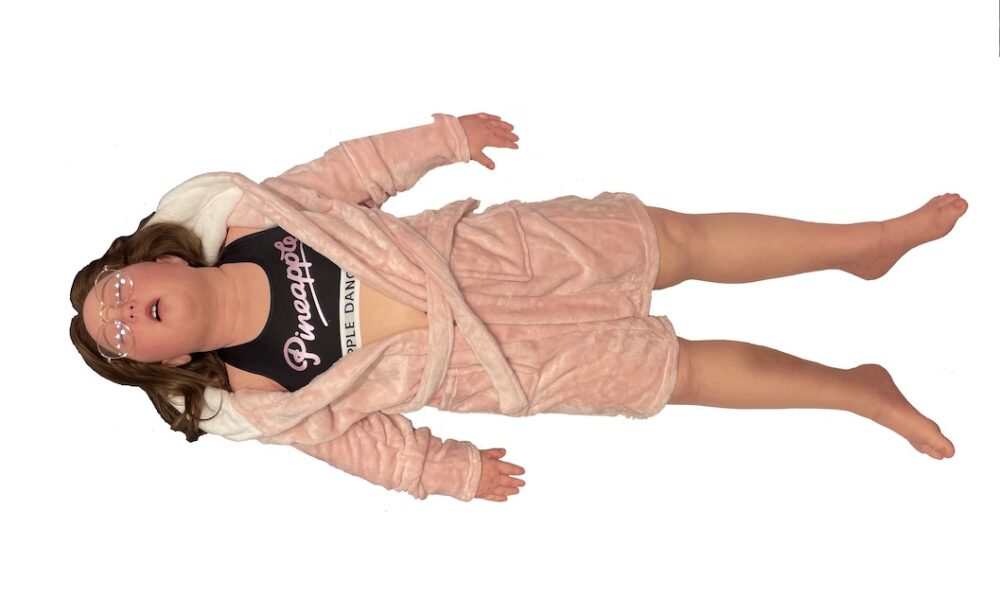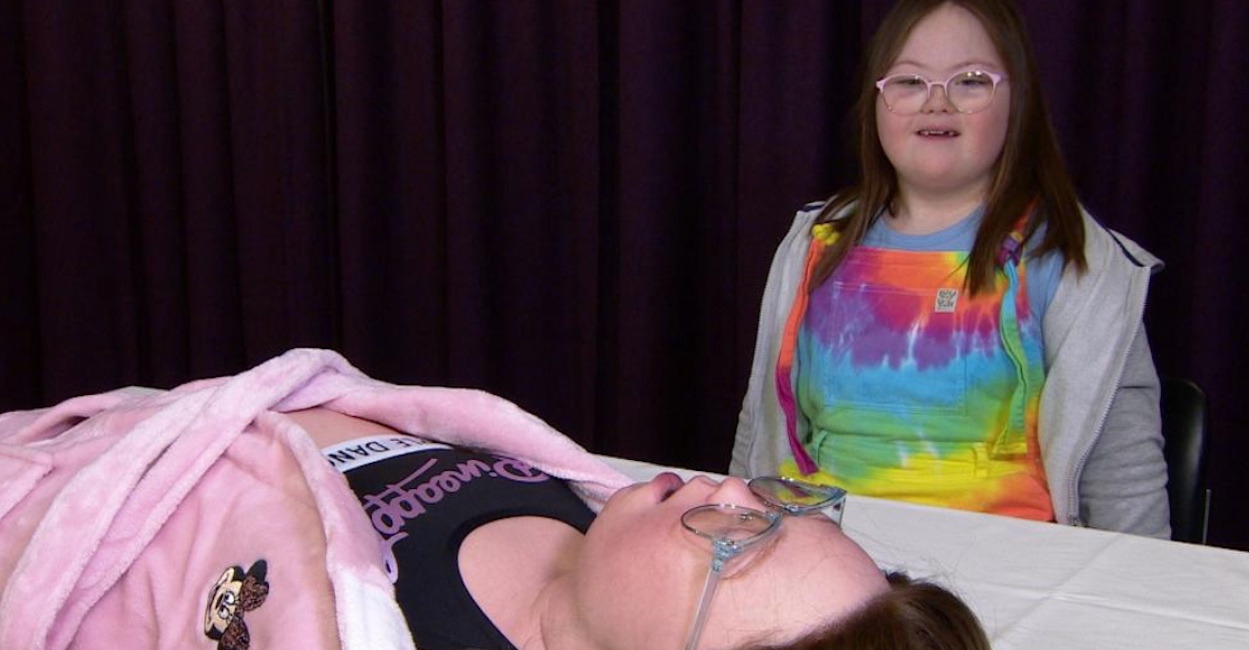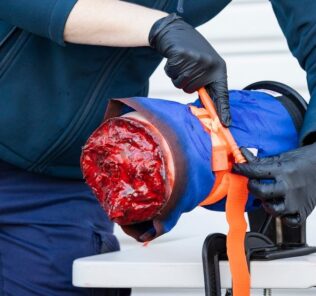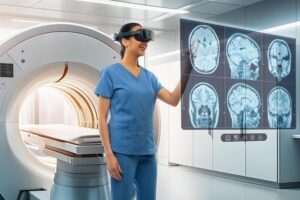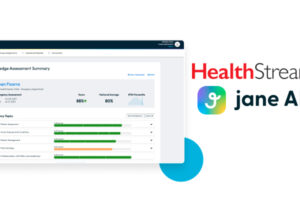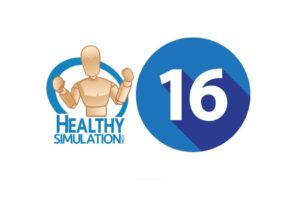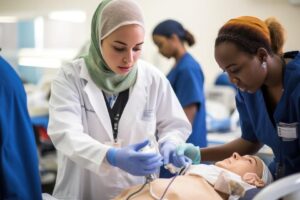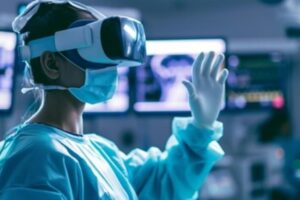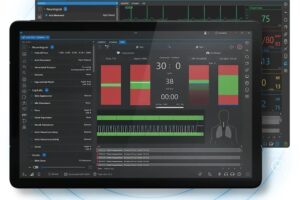Lifecast Body Simulation and Echo Healthcare Release World’s First Child Manikin with Down Syndrome
A paradigm shift in the way healthcare education and training is being delivered and one that is absolutely necessary has been approached – the advancement of diversity, equality, and inclusion principles across the continuum of healthcare education. The field of healthcare continues to see this within medical simulation with more diverse training manikins being offered in different ethnicities, ages, and skin tones, Armed Forces training on female simulators, bariatric, transitioning manikins, and now a child with Down Syndrome manikin being offered. As such, this HealthySimulation.com article highlights the release of Gwen, the world’s first child with Down Syndrome training manikin, by Lifecast Body Simulation Global, Echo Healthcare’s Florida-based division of Lifecast Body Simulation.
Gwen, a 7-year-old girl from the United Kingdom, was 3D body scanned and cast to provide a lifelike and hyper-realistic medical training manikin for healthcare providers and learners all over the world to now train on and better understand the medical complexities of Down Syndrome. Also called Trisomy 21, Down Syndrome is a genetic disorder caused when abnormal cell division results in extra genetic material from chromosome 21.
While varied amongst patients, a few common physical traits of Down Syndrome are low muscle tone, a smaller neck, a difficult airway for intubation, a larger tongue, smaller stature, gapping in the toes, a single deep crease across the center of the palm and smaller hands and feet – all of which are accurately represented in the child with Down Syndrome training manikin.
Sponsored Content:
The Gwen manikin allows clinicians all over the world to truly understand the complex health journeys that children with Down Syndrome endure. Training with the Gwen manikin also allows healthcare providers to focus on specialized management of the airway given their smaller jaw, larger tongue, smaller neck, and more difficult airway.
They will better understand the medical conditions affiliated with Down Syndrome – sleep apnea, congenital heart disease, vision problems, hearing loss, immune disorders, hypothyroidism, blood disorders, and ear infections to name a few. Learners can also practice their social skills and how to communicate with a pediatric Down Syndrome patient using the Gwen manikin. That way when they encounter a child with Down Syndrome patient in a real clinical setting, they are properly trained and know exactly how to communicate with and treat that patient.
The Gwen manikin was created by Lifecast Body Simulation and the University of Greenwich in London and also received support from the Down Syndrome Association. Echo Healthcare’s Lifecast Body Simulation Global will be producing the Gwen manikin for all of North and South America beginning in 2023.
Sponsored Content:
Gwen and her family are truly supporting such a worthy cause in creating awareness of Down Syndrome and giving healthcare providers an accurate means of training while continuing to support diversity and inclusion in simulation-based education and training. Gwen is an absolute joy to be around! She is a happy child who loves dance. When Gwen’s mom Cora asked Gwen if she wanted to volunteer to be the mold of this manikin, Gwen jumped at the opportunity asking, “Why is it only happening now?” She is such a smart girl asking such a valid question!
“Gwen is the world’s first truly inclusive manikin. Our goal is to make manikins that look like real people. We worked with the University of Greenwich in the UK to create this manikin lifecast and 3D scan of Gwen, a 7-year-old girl with Down Syndrome who lives in the UK with her dad, mum, and brother,” said David Halliwell, Founding Director of Lifecast Body Simulation Ltd.
The Gwen manikin made her debut in the U.S. at the International Meeting on Simulation in Healthcare (IMSH) and was a huge hit! Attendees received hands-on demonstrations and the ability to ask and understand the importance of integrating such a manikin into their simulation curriculum.
Echo Healthcare: Redefining Innovation
Echo Healthcare’s mission is to improve patient outcomes and save lives through innovation, education, and simulation technology. The company is redefining service and innovation by improving patient outcomes through education and technology. Echo Healthcare brings diverse product lines that complement one another in a meaningful way and can grow as your programs expand. The company was founded by a group of passionate simulation experts who bring over 40 years of experience into the marketplace.
Lifecast Body Simulation Partnership
Echo Healthcare is the proud licensor, manufacturer, and distributor of Lifecast Body Simulation Products in North America. Lifecast Body Simulation has developed a range of highly accurate and lifelike medical simulation manikins that are transforming the way medical simulation and education are delivered and absorbed. These products are created and designed in the United Kingdom but produced and manufactured in Florida. Every manikin demonstrates incredible realism and the very highest build quality. With an ever-evolving range, the company develops preterm and newborn babies as well as children and adults, making each one available in multiple ethnicities. Other Lifecast Body Simulation product examples include:
Micro-Preemie: Lifecast’s new Micro-Preemie Baby Manikin has been created by the company’s team in the United Kingdom, along with the invaluable assistance of Dr. Alok Sharma, Consultant Neonatologist at Southampton Hospital, England. The development of this manikin can help prepare healthcare providers for the urgent medical management of these most vulnerable of patients.
Preterm & Full Term Babies: Echo Healthcare’s manikin range now includes a 28 to 29-week premature baby featuring a full airway and UVC Umbilicus. The newborn baby is a highly accurate and lifelike infant designed to create an emotional response during education and training.
DDH Baby: Working with the team from The Royal Surrey Hospital, Lifecast Body Simulation has been able to produce the world’s first Hip Dysplasia Examination Manikin. This innovative manikin allows clinical staff to replicate the examination by involving gentle manipulation of the baby’s hip joints to check if there are any problems. The baby comes with all the features of the standard ALS Baby.
Learn More About Gwen
Lance Baily, BA, EMT-B, is the Founder & CEO of HealthySimulation.com, which he started while serving as the Director of the Nevada System of Higher Education’s Clinical Simulation Center of Las Vegas back in 2010. Lance is also the Founder and acting Advisor to the Board of SimGHOSTS.org, the world’s only non-profit organization dedicated to supporting professionals operating healthcare simulation technologies. His co-edited Book: “Comprehensive Healthcare Simulation: Operations, Technology, and Innovative Practice” is cited as a key source for professional certification in the industry. Lance’s background also includes serving as a Simulation Technology Specialist for the LA Community College District, EMS fire fighting, Hollywood movie production, rescue diving, and global travel. He and his wife Abigail Baily, PhD live in Las Vegas, Nevada with their two amazing daughters.
Sponsored Content:



